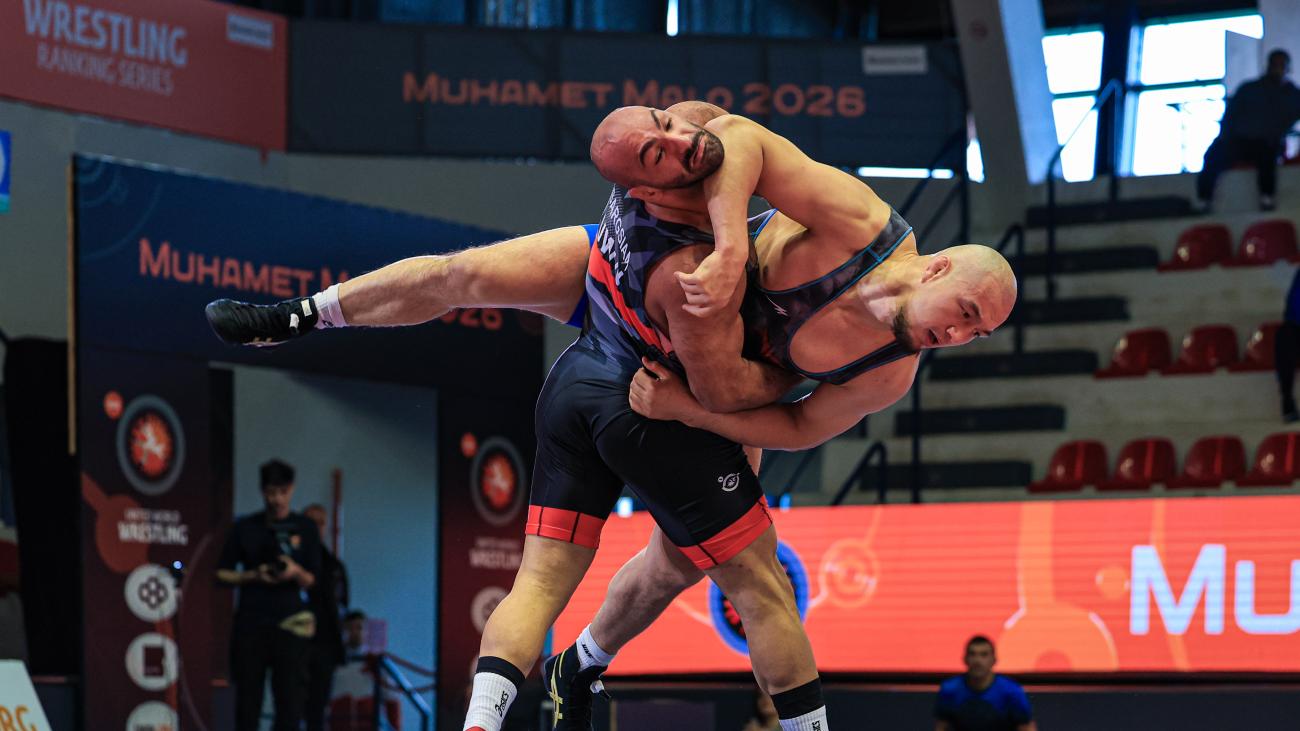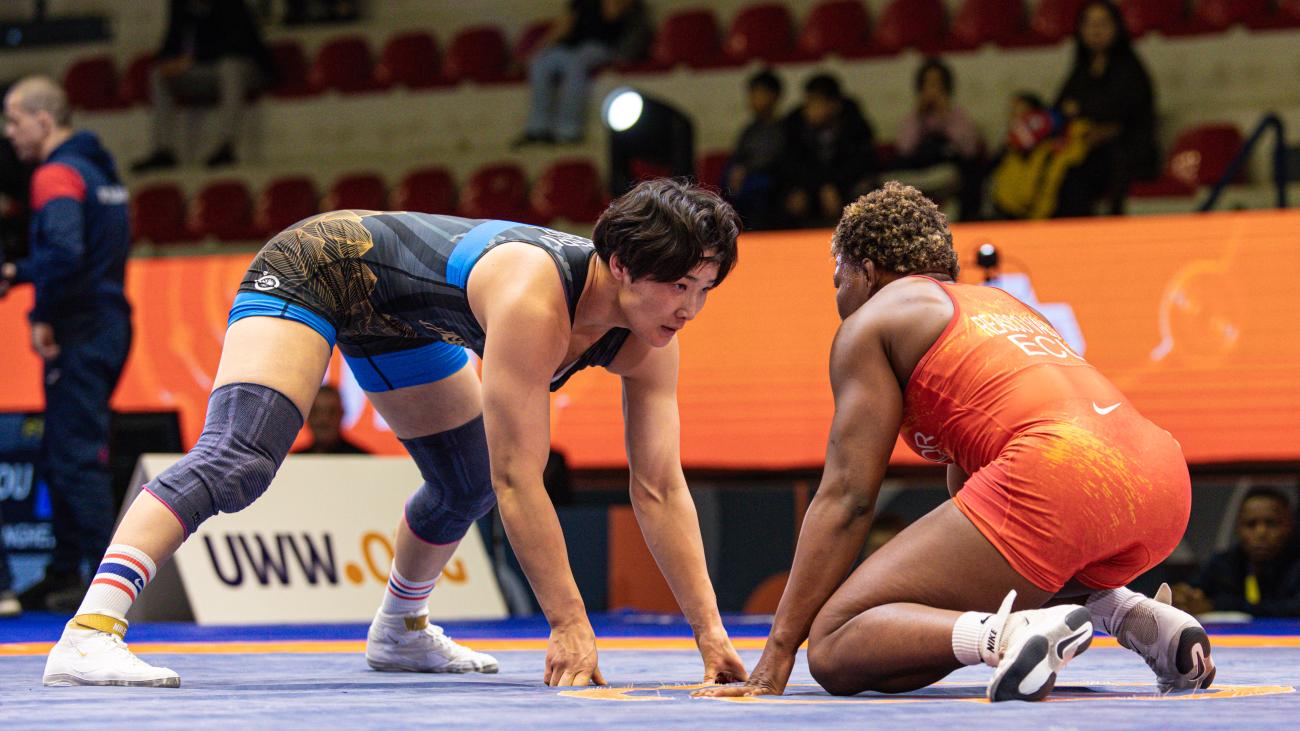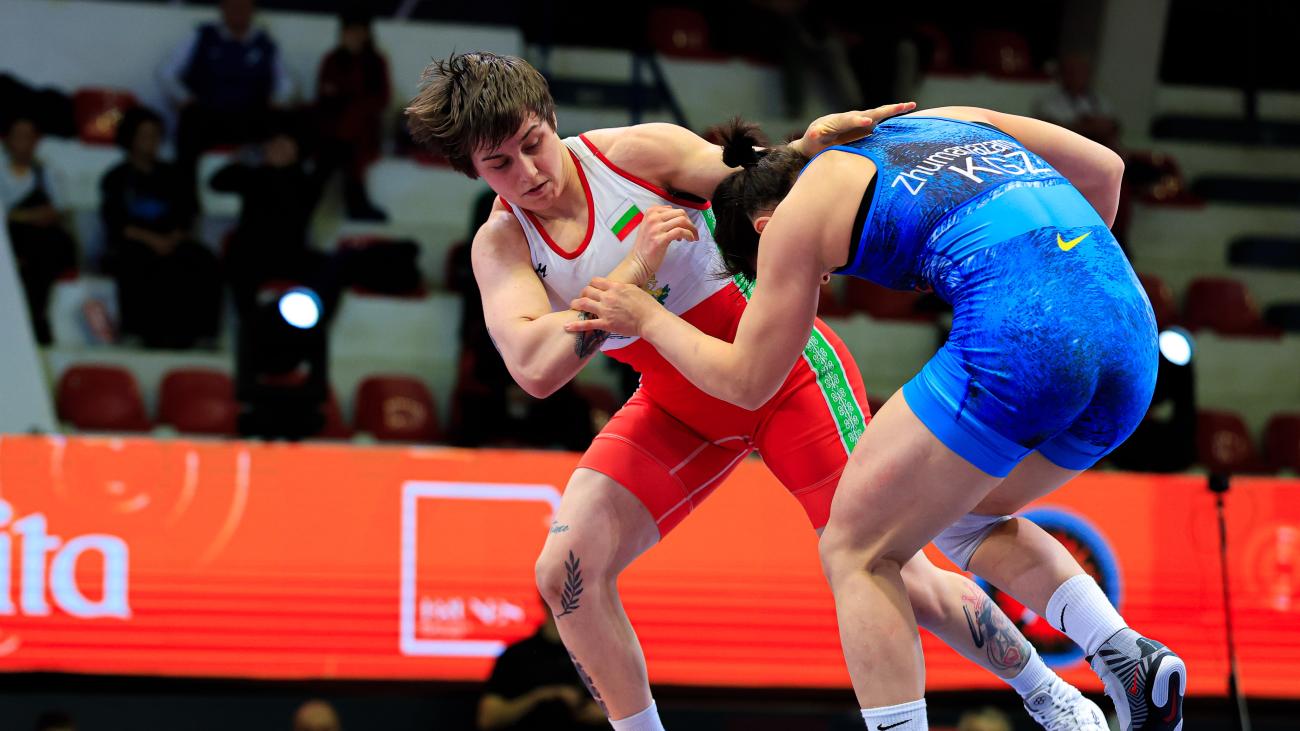Kaori Icho
Country: Japan
Style: Women’s freestyle
Weight Class: 63kg
Height: 166 cm
Birth Date: 1984-06-13
Place of Birth: Hachinohe, Japan
Kaori Icho: The Warm Stare of Perfection
As an Associated Press sports reporter Luke Meredith has seen plenty of dominant athletes, but few it seems have impressed him more than three-time Olympic Champion Kaori Icho of Japan.
“Kaori Icho is such a good wrestler,” Meredith tweeted, “that she almost looks annoyed that no one can challenge her.”
The annoyed look to which Meredith alludes is almost certainly the famous icy stare that Icho brings with her each time she wrestles. For the past decade, to take the mat opposite that frigid countenance meant imminent and certain defeat. Though an intense competition, Icho reserves her intimidating expressions for competition, her face blossoming into a broad and joy-filled smile off the mat.
Icho showed that powerful Dr. Jekyll/Mr. Hyde personality at the 2004 Olympics, when she won the gold medal by avenging a previous loss to America’s Sara McMann. Humble in her win, Icho stood atop the podium and offered condolences to the American silver medalist. Not only was that a moment that showed Icho’s graces, but her loss to McMann at the 2003 Klippan Open would also prove to be the last match she’s lost, creating an unbeaten streak that now spans more than ten years, 154 straight matches, eight world championships and three Olympic gold medals.
Icho’s third Oympic gold came in the 2012 London games, where she faced China's Rui Xue Jing in the finals. Powerful, technical and explosive in scoring positions, Icho did to Jing what she had done to every other opponent in that tournament—dissected her with technical proficiency unmatched by almost any woman in history, each clinical, precise and perfect move flowing from one to the next.
Though Icho triumphed in London with little struggle, she faced a true battle in the years leading up to the games. Her sister Chiharu retired from wrestling after the 2008 Beijing Olympics to become a schoolteacher. Chiharu, a world champion and Olympic gold medalist in her own right, had stood by Icho's side throughout her wrestling career, she had brought Icho into the sport of wrestling as a child, and now she decided to take a new path. Icho herself would sit out of competition for more than a year after Beijing. She had injuries that needed healing, but she also had a soul that needed searching. She had to decide if she could maintain her passion for the sport without her sister's presence. Eventually, she returned to wrestling, and returned to her winning ways. Now to keep her interest strong, she looks for new challenges, going so far as to seek out tough male opponents to wrestle against in training.
Born to a family of wrestlers in 1984 in the city of Hachinohe in the far north of Japan, Icho seemed destined to become the very best from a young age. She won her first national titles on the middle school level, and never looked back, eventually becoming a stand out on the Chūkyō-Women's University wrestling team, and winning her first Senior-level national championship at the age of 17.
She would explode onto the international wrestling scene, taking a silver medal in the 2002 Asian Games, and then winning her first world championship a month after that at the tender age of 18.
In 2005 Icho joined the elite wrestling club sponsored by Japanese security giant Alsok, where she has remained ever since. She and Alsok club teammate and three-time Olympic Champion Saori Yoshida have even appeared together in a zany television commercial for the corporation.
This commercial does not represent Icho's only foray into the public eye. She played a big part in Japan's successful bid to host the 2020 Olympics. This year, when International Olympic Committee officials came to inspect the potential combat sports venue in Tokyo, Icho stood ready to greet them, and to serve as a physical reminder of the very best the Olympic movement in Japan has to offer. She stays active in the governance of her own sport as well. This year she became one of only seven wrestlers elected to the new FILA Athlete Commission, a position that allows her to represent the interests of wrestlers throughout the world.
Icho's future looks as if it has more championships in store. After her 2012 gold, she would not firmly commit to a run at a fourth Olympic championship.
“The last three Olympics have just run past so fast, probably the fourth will arrive fast too,” she replied when asked about her potentially attempting to earn a fourth gold medal in the 2016 Olympics. “I have no idea at this moment.”
She provided a much stronger statement on her future this year in Budapest, where she dominated in winning her eighth world championship. Her presence in the competition suggest a path to the 2016 games, and her words indicate a continued drive toward improvement.
“Although I have become the world champion once again, I am not fully satisfied,” said Icho after her championship in Budapest. “I have not yet gotten the most out of myself.”
So it appears that Japan's Kaori Icho, one of wrestling's great masters, is readying herself and her gaze for one last virtuoso performance at the 2016 Olympics in Rio de Janeiro, where a gold medal would not just put her among the greatest wrestlers of all time, it would put her into the discussion of the greatest Olympians of all time.





